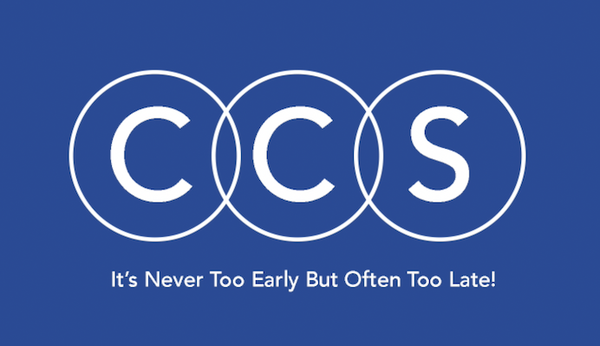
Acting as an Executor is a job for life. Careful consideration needs to be given as to whom to appoint:
- Being an Executor is a difficult and time consuming job.
- They carry personal legal liability.
- Relatives may be too distressed to perform the role.
- Decisions could make them unpopular with Beneficiaries.
Appointing an Executor
You should choose an Executor to carry out your wishes, as stated in the Will. Executors can be Beneficiaries under the Will and often people appoint their spouse, partner or children as Executors. Check with your proposed Executors that they are willing to take on this role before naming them in your Will, as it can involve considerable responsibility. Consider naming more than one Executor in case one dies before you.
It may also be easier for the Executors if there is more than one person to share the work and the responsibility. The Executors may have to deal with any day to day administration of your estate in the period before it can be distributed. Executors can claim from the estate for expenses incurred in carrying out their duties.
If the estate is large or complicated, there may be advantages in appointing a Professional Executor.
A professional Executor such as Solicitors, Accountants or Bank Managers who charge between 3 and 5% of the value of the estate for the work that they do and often an hourly rate in addition to this. If our legal partners are appointed at outset charge only 1.5% of the value of the estate and VAT, and disbursements.
Choice of Executors
- Professional People (Solicitor, Accountant, Bank Manager).
- Trust Corporation.
- Family members, partners, friends etc
They all have advantages and disadvantages which need to be considered in the light of the circumstances.
You should take into account the following:
- Availability and sustainability.
- Willingness to act.
- Any possibility of conflict or dispute.
- The possibility of them predeceasing you.
- The size, nature and location of the estate, the assets and the Beneficiaries and the extent and complexity of the burden placed on the Executors.
- The costs involved.
Where professionals are chosen as Executors, they may be appointed as individually named persons or as a firm. Executors like Trustees, are in a fiduciary relationship so they cannot make a profit out of their office. They may only claim out of pocket expenses. Therefore, a charging clause must be included, authorising them to charge for all work done by the Executors or their firm in administering the estate.
There is no legal objection to a Beneficiary being appointed as an Executor where he or she is the sole Beneficiary, or where the estate is small or uncomplicated.
Understanding the role of an Executor
An Executor has to carry out certain tasks and duties in order to legally fulfill the obligations of the task. As an Executor you should therefore:
- Obtain a copy of the medical certificate indicating cause of death and a formal notice from the Doctor if the family members do not wish to do so.
- Register the death at the Local Registry of Births, Deaths and Marriages if there are no family members wishing to do so. The death must be registered in order to obtain the Death Certificate. NB. It is advisable to get more than one copy as it will be needed when dealing with Insurance Companies, Pension Providers etc.
- Ensure any last wishes such as organ or body donations are carried out. The job might also include planning for the Funeral or Cremation and arranging for payments for the services provided.
- Make sure you have the last original Will of the Deceased.
- The Testator should have notified you as to the location of this.
- Locate all the heirs. This might seem like an easy task and if there are just a couple of children and they are the only ones names in the Will, it may be easy. If there are numerous heirs and they are named in the Will wither collectively or individually, the Executor must locate each and every one.
- Make an exhaustive list of all the assets of the estate, from personal to real property, to bank accounts, investments etc. debts including credit cards, utility bills, loans etc. must also be accounted for.
- Open a separate estate account into which money collected in can be credited. This will prevent estate monies being confused with personal finances.
- Notify all businesses of the death e.g. Utility Companies, Credit Card Companies, Banks, Council Tax Offices, Social Security etc.
- Make sure that all the Deceased’s debts are settled before the estate is distributed to the Beneficiaries.
- If there are minor or dependent children, the Executor could be responsible for arranging for their care and placement. The Deceased might not have their wishes state in the Will, but, if not, the Courts might need to be involved in the placement. If there are pets, the Executor will need to care for them and make arrangements for their continued care.
- Pay any Inheritance Tax necessary.
- Calculate and declare the value of the estate to HMRC on an Inheritance Tax return, within 12 months of death.
- Pay the Deceased’s Tax. This is your personal responsibility. Failures to submit an accurate account to HMRC may leave you open to personal liability or penalties.
- Complete the relevant forms and submit them to the Local Probate Registry to obtain the Grant of Probate.
- Distribute the contents of the Will, making sure that if anything is to be left to minors, a Trustee has been named.
- After you have completed all of your tasks, you the Administrator need to produce a full set of accounts for the Beneficiaries showing the estate assets and liabilities, administration income and expenses and how the estate has been distributed.
A key consideration for you will be the extent to which you wish to involve professionals to help and support you in this role.
We can deal with the administration of the estate if you so desire. In addition we have a professional duty of care to explain clearly in advance he basis of our charges, so you know what to expect.
If you are considering asking someone to serve as the Executor of your estate, be sure you understand the duties and responsibilities of being an Executor. Being the Executor of an estate is not really an honour; it’s a difficult, and time consuming job, and that carries personal legal liability. An Executor will probably work long, hard hours for at least a year or two getting your estate settled and they could quite possibly be a very unpopular person to your heirs.
To sign up for a FREE meeting with one of our advisers, click ‘Apply Today’
getasecondopinion.co.uk/contact
“It’s never too early- but it’s often too late!!!”

